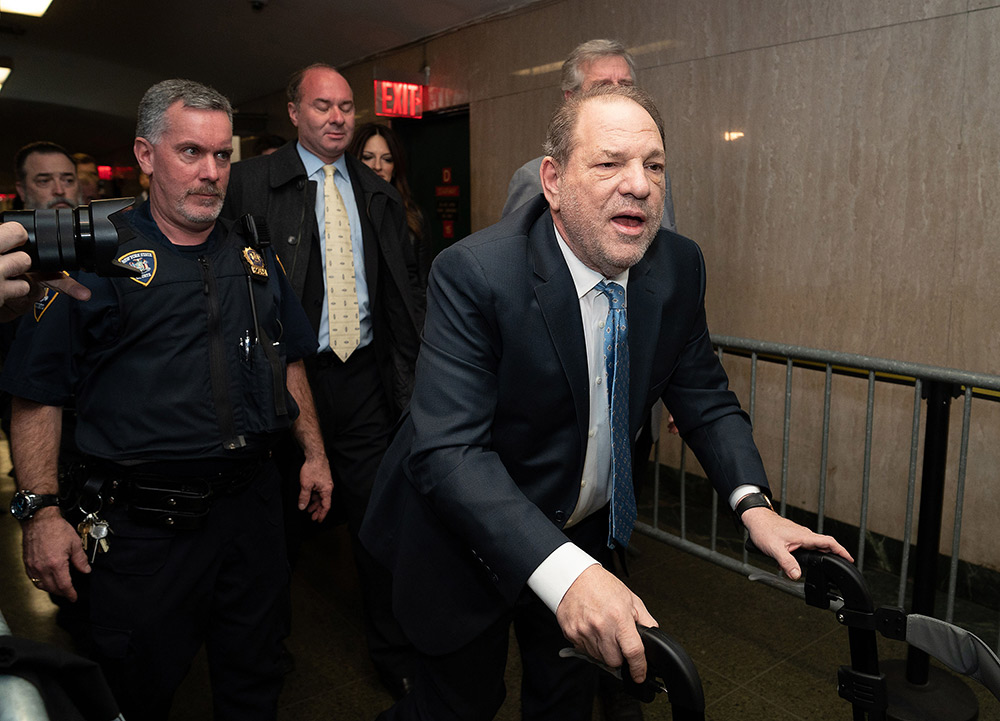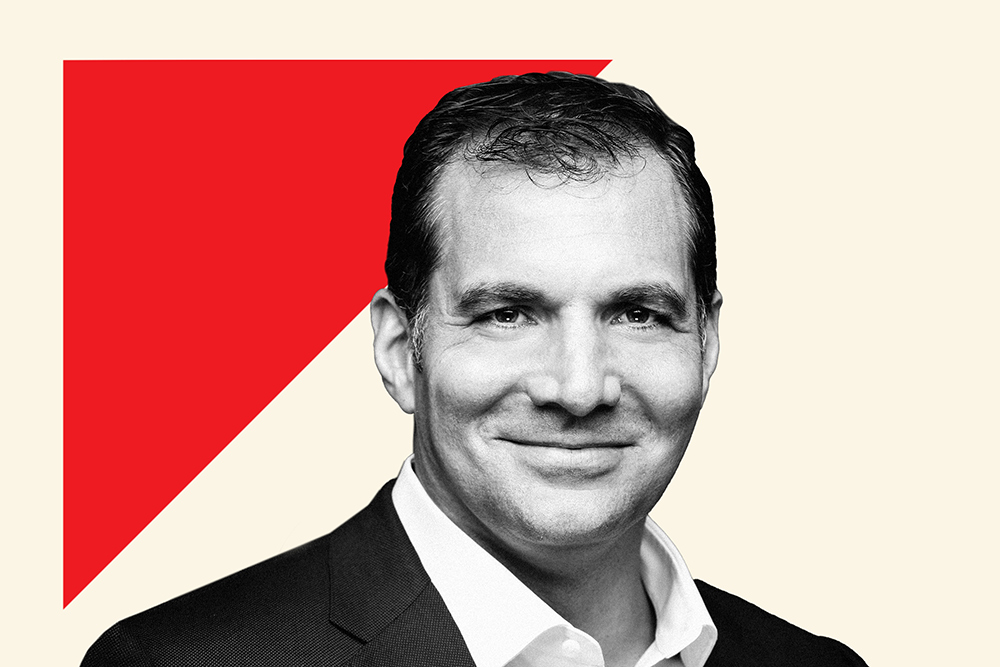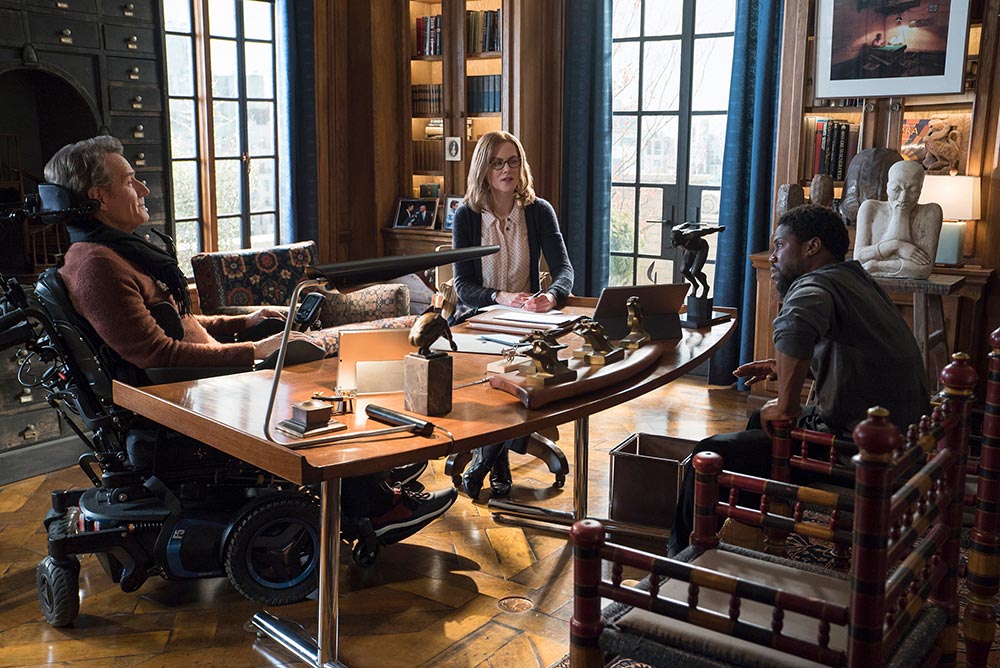2018年年初,哈维•韦恩斯坦和鲍勃•韦恩斯坦创立的传奇的电影公司岌岌可危。
多名女性指控哈维•韦恩斯坦性侵,加上多年来隐藏在公众视线之外的管理不善和腐败问题,使得这家制作了《白宫管家》、《帕丁顿熊》和《非常小特务》等影片的制片公司遭受重创。银行准备取消所投资电影的抵押赎回权,这家顶级电影公司即将分崩离析。

好莱坞的电影圈一时间议论纷纷,甚至有人希望,当大部分电影公司把目光转向大片时,这个仍然在支持昆汀•塔伦蒂诺等天才导演拍摄非主流中等预算影片的知名独立电影公司,能够像《杀死比尔》(塔伦蒂诺与韦恩斯坦合作出品的复仇影片)中新娘暗杀名单上的名字一样,灰飞烟灭。
然而,韦恩斯坦影业公司找到了英雄般的拯救者,他是一位来自美国得克萨斯州、从未涉足过电影业的重组专家。这着实令人大跌眼镜。
2018年7月,Lantern Capital Partners公司的首席执行官安迪•米切尔,以3.5亿美元现金购买韦恩斯坦影业的破产资产,并承担债务。
安迪•米切尔曾经帮助南加州爱迪生电力公司和通用汽车金融公司度过金融危机,并成功复活了一家锌回收企业、一家学校用品零售商和一家声名狼藉的分时度假销售商。
电影圈中的资深人士预言,没有人会把钱花在一个曾经以韦恩斯坦之名命名的机构上。
令他们惊讶的是,在Lantern买入韦恩斯坦影业后的第一年,米切尔就亲自运营这家公司,并且获得极高的票房,成功吸引了一流的合作伙伴和一位明星首席执行官加盟,重启电影和电视节目的制作。
他还高价出售了影片库中的电影,因为宅家不出的人们都喜欢看诸如《惊声尖叫3》和《乌云背后的幸福线》这样的影片。
(与此同时,哈维•韦恩斯坦在2020年年初被判有罪,并因为强奸和性侵犯罪被判处23年监禁。)
新名字新气象
米切尔在7月15日收盘时,宣布了一项重大决定:公司于2019年更名为Spyglass Media Group,将其影片库(277部电影)中的大部分影片出售给制作了《爱乐之城》和《饥饿游戏等热门影片,并拥有Starz有线电视网络的狮门公司。
狮门公司还将向Spyglass投入一笔新的资金,专门用于制作新的电影和电视节目,以换取20%的股权。米切尔的 Lantern持股最多,其余股份由现有的少数投资者持有,包括华纳兄弟、Cineworld(Regal Cinemas的所有者)、意大利的Eagle Pictures以及Spyglass的首席执行官、米高梅的前首席执行官加里•巴伯。
米切尔在把公司交给巴伯之前,负责了第一年的运营。他仍然是公司的董事会成员,并通过Lantern的投资,成为公司的大股东。

这笔交易正式令Spyglass成为了一棵摇钱树,在确保之前臭名远扬的公司名称不复存在的同时,将韦恩斯坦兄弟在公司鼎盛时期打造的系列电影,以及他们培养独立电影制片人的传统保留延续。
米切尔在接受《财富》杂志的深度访谈时称,出售影片库,将让他的投资人以及华纳、Eagle和其他股东在Spyglass投资的每一块钱,都可以获得回报,“获得可观的利润”。
简而言之,这笔交易给Spyglass带来的收益远远超过了米切尔为挽救韦恩斯坦影业花费的3.5亿美元。不过负责人没有透露具体的购买价格。
最重要的是,Spyglass将拥有足够的资金和知识产权来制作独立电影。既可以按照韦恩斯坦的老节奏,也可以选择兄弟俩的最佳拍档——从低成本到5000万美元左右的文艺片。
Spyglass保留了制作电影的权利,比如即将上映的《惊声尖叫5》是该系列电影的最新作品,还有处于前期制作阶段的《猛鬼追魂》。它还继续与NBC环球旗下的Bravo网络联合制作其热播电视真人秀《天桥骄子》(第17季刚由Spyglass完成拍摄)。
Spyglass保留了影片库所有电影的知识产权,以扩展或翻拍之前的系列电影。《猛鬼追魂》、《非常小特务》和《惊声尖叫》系列中的新作品都备受期待。
米切尔还在着手制作能够传承《烈火战车》经典的励志电影,该电影改编自畅销书《激流男孩》,讲述了华盛顿大学的赛艇队在1936年柏林奥运会上夺得金牌的故事。
米切尔说:“我们将是一家纯制片公司,每年制作五到六部电影和数量相当的电视节目。重要的是质量,而不是数量。大制片公司开销巨大。让所有人都忙活起来压力可不小。他们一年要拍20部电影,还要争取继续拍摄《星球大战》或《复仇者联盟》。”
这给Spyglass留下了一个很大的空间。他补充说:“我们愿意接受那些大制片公司不太关注的、有创意空间的挑战。”
背景故事1:唯一的出价
虽然米切尔说,那时他对好莱坞一无所知,但纯粹从商业角度来看,韦恩斯坦事件只是提供了他所看重的那种机会。
他说:“我们去找那些必须出局、陷入困境的人。”
2017年11月,在《纽约时报》曝出韦恩斯坦向提出指控的女性支付封口费一个月后,米切尔接到了代表债权人顾问的电话。
他说:“我们不认识演艺界人士,但我们认识擅长重组的人。”
米切尔开始研究韦恩斯坦影业的财务状况,判断Lantern是否应该出价。
米切尔告诉《财富》杂志:“很明显,哈维从未赚钱,他只是善于融资。公司里除了哈维和鲍勃,没有人赚钱。”他对他们的极度奢侈感到震惊。他说:“他们的司机还配有司机,哈维会要求为同一部电影提供多个剧本。《激流男孩》就是如此。”
据米切尔回忆,公司拖欠了各种费用,包括演职人员、协助他们制片的电影公司的费用,甚至还有仓库的租金。仓库里堆满了各种物品,从剧本到旧道具,不一而足。
由于韦恩斯坦兄弟俩忙于争取新的资金,电影制作一拖再拖。银行愈发认为这家制片公司信用不佳。
米切尔说:“丑闻爆发后,韦恩斯坦影业从一家资不抵债的公司,变成了一家无法继续存活公司。”
丑闻爆发后,在包括保罗•都铎•琼斯和马克•拉斯里等亿万富翁在内的外部董事中,只有手握Eagle Pictures的突尼斯制片人塔拉克•本•阿玛尔和担任广告巨头WPP并购主管的兰斯•梅洛夫没有出走。
本•阿玛尔和梅洛夫两人均担任董事,保护各自公司在韦恩斯坦影业的股权。尽管投资打了水漂,他们还是为拯救韦恩斯坦影业进行了一轮造势。正是他们的努力让米切尔持续关注韦恩斯坦影业。
本•阿玛尔说:“我们不想一觉醒来,发现债权人顾问把买主安迪和米洛斯•布拉约维奇赶走了。”
米切尔从一开始就认为,企业只能通过破产来拯救。
他说:“我把这一点告诉了兰斯和塔拉克。如果你在破产程序之外购买,你买的就是公司的壳,公司的身份。你会因为公司曾经的所作所为而被起诉。你接手了公司的所有问题。”
但他也很中意这些资产,并且相信没有任何竞争对手会在破产程序之外进行购买。
他说:“韦恩斯坦影业有大IP,但我并不想购买当时处于泥潭中的公司。我认为:船在下沉,而我们是诺亚方舟。他们想要活下来,就得换我们的新船。”
米切尔想要的是,在破产程序中购买仅有的资产,由此也能够精确地判断众多等待已久、愤怒的债权人可以得到什么。他的目标是拯救这家公司。
破产程序确保债权人公平受偿,当绝大多数债权人问题得到解决后,公司就能够摆脱泥潭,留下一张干净的资产负债表。
审理破产案件的法院还向哈维犯罪的受害者发放了和解金,这些钱来自出售公司资产所得的款项,再加上公司的保险公司支付的款项。
正如米切尔所预测的那样,尽管Colony Capital公司的汤姆•巴拉克很早就表示出了兴趣,投资人罗恩•伯克尔还在2018年3月初宣布了一项交易,但几天后就转身离开,没有买家站出来阻止韦恩斯坦影业走上法庭。
在破产程序中,“假马竞标”买家米切尔以3.5亿美元收购了韦恩斯坦影业的全部资产。米切尔说:“正是这一出价使他们免于清算。这意味着公司不会消亡,有人愿意雇佣公司员工。”
当然,这一过程对所有潜在买家公开,约有40名竞标者参与拍卖。米切尔说:“他们每个人都只想要其中一部分,而不是全部打包买走。他们想挑选最好的部分,而我的优势是想要全盘买下。”
背景故事2:你永远不会在这个城镇工作
米切尔的赌博引来了很多人的嘲笑。
“很多电影人告诉我:‘笨蛋,你会输得精光的。好莱坞永远不会和你合作的。’我的投资者跟我说:‘我给了你数亿美元,你却要买下一家曾经由性侵者掌管的韦恩斯坦公司?’”
据米切尔说,有两点担忧让投资人望而却步。
第一点是,观众会抵制哈维•韦恩斯坦投资的任何娱乐内容。“好莱坞有很多人认为,美国观众会抵制这些电影。但从我自己的经验来看,我认为不会那样。”
他说,“居住于得克萨斯州或堪萨斯州的电影观众从未听说过哈维•韦恩斯坦,但他们知道《帕丁顿熊》和塔伦蒂诺的电影。我自己的五个孩子都喜欢那些电影。人们不会像好莱坞那样关注电影的演职员名单。”
第二点担忧是:购买韦恩斯坦影视内容版权的制片厂会宣称韦恩斯坦的不当行为构成“重大不利变化”,因而违背合约。质疑者说,所谓的重大不利变化很有可能发生,如果Netflix或亚马逊终止合约,制片厂会再次破产。
米切尔也不相信这种说法。“我知道的是,律师们也说,一家公司不能因为一个制片人做了可怕的事情就一走了之。”他说,“没有任何条款规定,如果他/她做了什么糟糕的事情,合约就不再适用。想想所有为那些电影呕心沥血的工作人员。如果真那样的话,所有努力就都会因为一位执行制片人的所作所为而付诸东流。”
2018年7月,法官宣布Lantern胜诉。其包含现金和承付债务的3.5亿美元构成了偿还债权人的整个资金池,债权人和股东为韦恩斯坦公司提供了远超10亿美元的资金。
拥有优先权利的债权人是为该公司提供融资的多家银行。它们占据非常有利的位置,因为电影本身的现金流直接落入它们手中,为它们的贷款提供担保。如果银行拿不到钱,它们就会把电影拿去卖掉。这些贷款方获得了1.65亿美元的现金。
另有5000万美元用于支付律师费、财务顾问费和其他行政费用。法院还向那些有着强力主张的制片公司支付了数千万美元,因为它们与韦恩斯坦兄弟共同出资拍摄了一些仍然处于制作阶段的电影。
总的来说,韦恩斯坦公司的倒下,让股权投资者损失了4.5亿美元,贷款机构也损失了数亿美元。
亿万富翁莱恩•布拉瓦特尼克手下一家公司,由于是韦恩斯坦公司电视业务的无担保债权人,遭受了4500万美元的损失。
米切尔接手时,该制片公司仍然有大约80名员工,大约是破产前员工总数的一半。
“我必须得确保自己能够将这些人重新雇用到一家新的公司,这家公司叫做Lantern Entertainment。”米切尔说道,“我们在威尔希尔大道的办公室召开了一次全体会议。我说:‘我们要买下这些资产。请来为新公司工作。接下来会有一个正式的入职流程。’”
一位员工举手,问道:“你们会做犯罪背景调查和药检吗?”
米切尔回忆道:“我当时很惊讶。我回答说:‘是的,当然。’第二天,更让我吃惊的是,有12人辞职了。”
虽然被逐出管理层,但鲍勃•韦恩斯坦还是想为这家新公司制作电影。
米切尔称:“他说:‘我很了解这些人才。’也有一些人想和鲍勃•韦恩斯坦共事,并不是所有人都讨厌他。但我想让这家公司摆脱韦恩斯坦的影响。”
寻找合适的团队
到2020年年初,Spyglass从片库获得了丰厚的回报,付清了收购该公司时所带来的负债。
前一年,米切尔吸引到新的投资者,其中包括本•阿玛尔的Eagle Pictures、华纳兄弟、Cineworld以及最重要的米高梅公司前首席执行官加里•巴伯。据米切尔说,新的合作伙伴以接近米切尔原始成本的价格入股。
巴伯希望提升旗下Spyglass制片公司的实力,该公司曾经制作过独立电影,代表作有《27套礼服》和《第六感》。
2019年4月,巴伯取代米切尔担任公司首席执行官,Lantern更名为Spyglass Media Group。
该制片公司取得成功的一个主要原因是,米切尔当初决定将其片库销售外包给狮门影业。后者体量更大,可以灵活地将Lantern和Spyglass的作品与自己的热门影片打包销售,从而提高双方的授权费用。
新冠疫情期间,随着美国人将大量的时间花在观影煲剧上,Spyglass片库的价值获得大幅提升,尤其是在业界普遍缺乏新影视内容的背景下。
米切尔指出:“每个人都被困在家里,除了看电视之外无事可做,对我们来说这是天时地利。”有了此次合作的铺垫,狮门影业随后买下了Spyglass片库中的大部分影片,这一交易将为Spyglass提供强大发展动力。

该制片公司正重新开始制作电影。
它最近完成了《惊声尖叫5》的拍摄,该片集结了最初的主演阵容,包括柯特妮•考克斯、大卫•阿奎特和尼夫•坎贝尔。
它保留了凯文•哈特、妮可•基德曼和布莱恩•克兰斯顿主演的《触不可及》,这部影片在2019年获得了1.3亿美元的票房。
米切尔说:“该公司已经失去了发行渠道。那是哈维和鲍勃的专长。在STX出手之前,我们向大多数主要发行商兜售过《触不可及》。”
Spyglass正在制作《非常小特务》的新续集,也拿下了关于一辆会说话的汽车的老牌电视剧《霹雳游侠》的版权。它还计划与本•阿玛尔的Eagle Pictures合作翻拍意大利老电影《完美陌生人》。
这位重组专家已经回到达拉斯,那么他是如何看待自己在电影制片厂的那段时间的呢?
“有位大牌经纪人对我说:‘我们喜欢你们这些搞私募基金的人。’”米切尔说。“‘你们乘坐私人飞机来到好莱坞,然后乘坐灰狗巴士离开。’业内人士是这么看的:‘你以为你是谁?敢来这里指点我们应该如何经营我们自己的业务?我们不欢迎你!’”
而米切尔赢得了赞许,因为他拯救了一个标志性的品牌——也因为他证明了,可以重新培养人才,做出大胆的选择,而不是沉溺于奢靡之风之中,这股疯狂的奢靡之风已经让许多好莱坞的商业故事,演变成一部部黑暗至极的黑色电影。(财富中文网)
译者:徐亮、万志文
2018年年初,哈维•韦恩斯坦和鲍勃•韦恩斯坦创立的传奇的电影公司岌岌可危。
多名女性指控哈维•韦恩斯坦性侵,加上多年来隐藏在公众视线之外的管理不善和腐败问题,使得这家制作了《白宫管家》、《帕丁顿熊》和《非常小特务》等影片的制片公司遭受重创。银行准备取消所投资电影的抵押赎回权,这家顶级电影公司即将分崩离析。
好莱坞的电影圈一时间议论纷纷,甚至有人希望,当大部分电影公司把目光转向大片时,这个仍然在支持昆汀•塔伦蒂诺等天才导演拍摄非主流中等预算影片的知名独立电影公司,能够像《杀死比尔》(塔伦蒂诺与韦恩斯坦合作出品的复仇影片)中新娘暗杀名单上的名字一样,灰飞烟灭。
然而,韦恩斯坦影业公司找到了英雄般的拯救者,他是一位来自美国得克萨斯州、从未涉足过电影业的重组专家。这着实令人大跌眼镜。
2018年7月,Lantern Capital Partners公司的首席执行官安迪•米切尔,以3.5亿美元现金购买韦恩斯坦影业的破产资产,并承担债务。
安迪•米切尔曾经帮助南加州爱迪生电力公司和通用汽车金融公司度过金融危机,并成功复活了一家锌回收企业、一家学校用品零售商和一家声名狼藉的分时度假销售商。
电影圈中的资深人士预言,没有人会把钱花在一个曾经以韦恩斯坦之名命名的机构上。
令他们惊讶的是,在Lantern买入韦恩斯坦影业后的第一年,米切尔就亲自运营这家公司,并且获得极高的票房,成功吸引了一流的合作伙伴和一位明星首席执行官加盟,重启电影和电视节目的制作。
他还高价出售了影片库中的电影,因为宅家不出的人们都喜欢看诸如《惊声尖叫3》和《乌云背后的幸福线》这样的影片。
(与此同时,哈维•韦恩斯坦在2020年年初被判有罪,并因为强奸和性侵犯罪被判处23年监禁。)
新名字新气象
米切尔在7月15日收盘时,宣布了一项重大决定:公司于2019年更名为Spyglass Media Group,将其影片库(277部电影)中的大部分影片出售给制作了《爱乐之城》和《饥饿游戏等热门影片,并拥有Starz有线电视网络的狮门公司。
狮门公司还将向Spyglass投入一笔新的资金,专门用于制作新的电影和电视节目,以换取20%的股权。米切尔的 Lantern持股最多,其余股份由现有的少数投资者持有,包括华纳兄弟、Cineworld(Regal Cinemas的所有者)、意大利的Eagle Pictures以及Spyglass的首席执行官、米高梅的前首席执行官加里•巴伯。
米切尔在把公司交给巴伯之前,负责了第一年的运营。他仍然是公司的董事会成员,并通过Lantern的投资,成为公司的大股东。
这笔交易正式令Spyglass成为了一棵摇钱树,在确保之前臭名远扬的公司名称不复存在的同时,将韦恩斯坦兄弟在公司鼎盛时期打造的系列电影,以及他们培养独立电影制片人的传统保留延续。
米切尔在接受《财富》杂志的深度访谈时称,出售影片库,将让他的投资人以及华纳、Eagle和其他股东在Spyglass投资的每一块钱,都可以获得回报,“获得可观的利润”。
简而言之,这笔交易给Spyglass带来的收益远远超过了米切尔为挽救韦恩斯坦影业花费的3.5亿美元。不过负责人没有透露具体的购买价格。
最重要的是,Spyglass将拥有足够的资金和知识产权来制作独立电影。既可以按照韦恩斯坦的老节奏,也可以选择兄弟俩的最佳拍档——从低成本到5000万美元左右的文艺片。
Spyglass保留了制作电影的权利,比如即将上映的《惊声尖叫5》是该系列电影的最新作品,还有处于前期制作阶段的《猛鬼追魂》。它还继续与NBC环球旗下的Bravo网络联合制作其热播电视真人秀《天桥骄子》(第17季刚由Spyglass完成拍摄)。
Spyglass保留了影片库所有电影的知识产权,以扩展或翻拍之前的系列电影。《猛鬼追魂》、《非常小特务》和《惊声尖叫》系列中的新作品都备受期待。
米切尔还在着手制作能够传承《烈火战车》经典的励志电影,该电影改编自畅销书《激流男孩》,讲述了华盛顿大学的赛艇队在1936年柏林奥运会上夺得金牌的故事。
米切尔说:“我们将是一家纯制片公司,每年制作五到六部电影和数量相当的电视节目。重要的是质量,而不是数量。大制片公司开销巨大。让所有人都忙活起来压力可不小。他们一年要拍20部电影,还要争取继续拍摄《星球大战》或《复仇者联盟》。”
这给Spyglass留下了一个很大的空间。他补充说:“我们愿意接受那些大制片公司不太关注的、有创意空间的挑战。”
背景故事1:唯一的出价
虽然米切尔说,那时他对好莱坞一无所知,但纯粹从商业角度来看,韦恩斯坦事件只是提供了他所看重的那种机会。
他说:“我们去找那些必须出局、陷入困境的人。”
2017年11月,在《纽约时报》曝出韦恩斯坦向提出指控的女性支付封口费一个月后,米切尔接到了代表债权人顾问的电话。
他说:“我们不认识演艺界人士,但我们认识擅长重组的人。”
米切尔开始研究韦恩斯坦影业的财务状况,判断Lantern是否应该出价。
米切尔告诉《财富》杂志:“很明显,哈维从未赚钱,他只是善于融资。公司里除了哈维和鲍勃,没有人赚钱。”他对他们的极度奢侈感到震惊。他说:“他们的司机还配有司机,哈维会要求为同一部电影提供多个剧本。《激流男孩》就是如此。”
据米切尔回忆,公司拖欠了各种费用,包括演职人员、协助他们制片的电影公司的费用,甚至还有仓库的租金。仓库里堆满了各种物品,从剧本到旧道具,不一而足。
由于韦恩斯坦兄弟俩忙于争取新的资金,电影制作一拖再拖。银行愈发认为这家制片公司信用不佳。
米切尔说:“丑闻爆发后,韦恩斯坦影业从一家资不抵债的公司,变成了一家无法继续存活公司。”
丑闻爆发后,在包括保罗•都铎•琼斯和马克•拉斯里等亿万富翁在内的外部董事中,只有手握Eagle Pictures的突尼斯制片人塔拉克•本•阿玛尔和担任广告巨头WPP并购主管的兰斯•梅洛夫没有出走。
本•阿玛尔和梅洛夫两人均担任董事,保护各自公司在韦恩斯坦影业的股权。尽管投资打了水漂,他们还是为拯救韦恩斯坦影业进行了一轮造势。正是他们的努力让米切尔持续关注韦恩斯坦影业。
本•阿玛尔说:“我们不想一觉醒来,发现债权人顾问把买主安迪和米洛斯•布拉约维奇赶走了。”
米切尔从一开始就认为,企业只能通过破产来拯救。
他说:“我把这一点告诉了兰斯和塔拉克。如果你在破产程序之外购买,你买的就是公司的壳,公司的身份。你会因为公司曾经的所作所为而被起诉。你接手了公司的所有问题。”
但他也很中意这些资产,并且相信没有任何竞争对手会在破产程序之外进行购买。
他说:“韦恩斯坦影业有大IP,但我并不想购买当时处于泥潭中的公司。我认为:船在下沉,而我们是诺亚方舟。他们想要活下来,就得换我们的新船。”
米切尔想要的是,在破产程序中购买仅有的资产,由此也能够精确地判断众多等待已久、愤怒的债权人可以得到什么。他的目标是拯救这家公司。
破产程序确保债权人公平受偿,当绝大多数债权人问题得到解决后,公司就能够摆脱泥潭,留下一张干净的资产负债表。
审理破产案件的法院还向哈维犯罪的受害者发放了和解金,这些钱来自出售公司资产所得的款项,再加上公司的保险公司支付的款项。
正如米切尔所预测的那样,尽管Colony Capital公司的汤姆•巴拉克很早就表示出了兴趣,投资人罗恩•伯克尔还在2018年3月初宣布了一项交易,但几天后就转身离开,没有买家站出来阻止韦恩斯坦影业走上法庭。
在破产程序中,“假马竞标”买家米切尔以3.5亿美元收购了韦恩斯坦影业的全部资产。米切尔说:“正是这一出价使他们免于清算。这意味着公司不会消亡,有人愿意雇佣公司员工。”
当然,这一过程对所有潜在买家公开,约有40名竞标者参与拍卖。米切尔说:“他们每个人都只想要其中一部分,而不是全部打包买走。他们想挑选最好的部分,而我的优势是想要全盘买下。”
背景故事2:你永远不会在这个城镇工作
米切尔的赌博引来了很多人的嘲笑。
“很多电影人告诉我:‘笨蛋,你会输得精光的。好莱坞永远不会和你合作的。’我的投资者跟我说:‘我给了你数亿美元,你却要买下一家曾经由性侵者掌管的韦恩斯坦公司?’”
据米切尔说,有两点担忧让投资人望而却步。
第一点是,观众会抵制哈维•韦恩斯坦投资的任何娱乐内容。“好莱坞有很多人认为,美国观众会抵制这些电影。但从我自己的经验来看,我认为不会那样。”
他说,“居住于得克萨斯州或堪萨斯州的电影观众从未听说过哈维•韦恩斯坦,但他们知道《帕丁顿熊》和塔伦蒂诺的电影。我自己的五个孩子都喜欢那些电影。人们不会像好莱坞那样关注电影的演职员名单。”
第二点担忧是:购买韦恩斯坦影视内容版权的制片厂会宣称韦恩斯坦的不当行为构成“重大不利变化”,因而违背合约。质疑者说,所谓的重大不利变化很有可能发生,如果Netflix或亚马逊终止合约,制片厂会再次破产。
米切尔也不相信这种说法。“我知道的是,律师们也说,一家公司不能因为一个制片人做了可怕的事情就一走了之。”他说,“没有任何条款规定,如果他/她做了什么糟糕的事情,合约就不再适用。想想所有为那些电影呕心沥血的工作人员。如果真那样的话,所有努力就都会因为一位执行制片人的所作所为而付诸东流。”
2018年7月,法官宣布Lantern胜诉。其包含现金和承付债务的3.5亿美元构成了偿还债权人的整个资金池,债权人和股东为韦恩斯坦公司提供了远超10亿美元的资金。
拥有优先权利的债权人是为该公司提供融资的多家银行。它们占据非常有利的位置,因为电影本身的现金流直接落入它们手中,为它们的贷款提供担保。如果银行拿不到钱,它们就会把电影拿去卖掉。这些贷款方获得了1.65亿美元的现金。
另有5000万美元用于支付律师费、财务顾问费和其他行政费用。法院还向那些有着强力主张的制片公司支付了数千万美元,因为它们与韦恩斯坦兄弟共同出资拍摄了一些仍然处于制作阶段的电影。
总的来说,韦恩斯坦公司的倒下,让股权投资者损失了4.5亿美元,贷款机构也损失了数亿美元。
亿万富翁莱恩•布拉瓦特尼克手下一家公司,由于是韦恩斯坦公司电视业务的无担保债权人,遭受了4500万美元的损失。
米切尔接手时,该制片公司仍然有大约80名员工,大约是破产前员工总数的一半。
“我必须得确保自己能够将这些人重新雇用到一家新的公司,这家公司叫做Lantern Entertainment。”米切尔说道,“我们在威尔希尔大道的办公室召开了一次全体会议。我说:‘我们要买下这些资产。请来为新公司工作。接下来会有一个正式的入职流程。’”
一位员工举手,问道:“你们会做犯罪背景调查和药检吗?”
米切尔回忆道:“我当时很惊讶。我回答说:‘是的,当然。’第二天,更让我吃惊的是,有12人辞职了。”
虽然被逐出管理层,但鲍勃•韦恩斯坦还是想为这家新公司制作电影。
米切尔称:“他说:‘我很了解这些人才。’也有一些人想和鲍勃•韦恩斯坦共事,并不是所有人都讨厌他。但我想让这家公司摆脱韦恩斯坦的影响。”
寻找合适的团队
到2020年年初,Spyglass从片库获得了丰厚的回报,付清了收购该公司时所带来的负债。
前一年,米切尔吸引到新的投资者,其中包括本•阿玛尔的Eagle Pictures、华纳兄弟、Cineworld以及最重要的米高梅公司前首席执行官加里•巴伯。据米切尔说,新的合作伙伴以接近米切尔原始成本的价格入股。
巴伯希望提升旗下Spyglass制片公司的实力,该公司曾经制作过独立电影,代表作有《27套礼服》和《第六感》。
2019年4月,巴伯取代米切尔担任公司首席执行官,Lantern更名为Spyglass Media Group。
该制片公司取得成功的一个主要原因是,米切尔当初决定将其片库销售外包给狮门影业。后者体量更大,可以灵活地将Lantern和Spyglass的作品与自己的热门影片打包销售,从而提高双方的授权费用。
新冠疫情期间,随着美国人将大量的时间花在观影煲剧上,Spyglass片库的价值获得大幅提升,尤其是在业界普遍缺乏新影视内容的背景下。
米切尔指出:“每个人都被困在家里,除了看电视之外无事可做,对我们来说这是天时地利。”有了此次合作的铺垫,狮门影业随后买下了Spyglass片库中的大部分影片,这一交易将为Spyglass提供强大发展动力。
该制片公司正重新开始制作电影。
它最近完成了《惊声尖叫5》的拍摄,该片集结了最初的主演阵容,包括柯特妮•考克斯、大卫•阿奎特和尼夫•坎贝尔。
它保留了凯文•哈特、妮可•基德曼和布莱恩•克兰斯顿主演的《触不可及》,这部影片在2019年获得了1.3亿美元的票房。
米切尔说:“该公司已经失去了发行渠道。那是哈维和鲍勃的专长。在STX出手之前,我们向大多数主要发行商兜售过《触不可及》。”
Spyglass正在制作《非常小特务》的新续集,也拿下了关于一辆会说话的汽车的老牌电视剧《霹雳游侠》的版权。它还计划与本•阿玛尔的Eagle Pictures合作翻拍意大利老电影《完美陌生人》。
这位重组专家已经回到达拉斯,那么他是如何看待自己在电影制片厂的那段时间的呢?
“有位大牌经纪人对我说:‘我们喜欢你们这些搞私募基金的人。’”米切尔说。“‘你们乘坐私人飞机来到好莱坞,然后乘坐灰狗巴士离开。’业内人士是这么看的:‘你以为你是谁?敢来这里指点我们应该如何经营我们自己的业务?我们不欢迎你!’”
而米切尔赢得了赞许,因为他拯救了一个标志性的品牌——也因为他证明了,可以重新培养人才,做出大胆的选择,而不是沉溺于奢靡之风之中,这股疯狂的奢靡之风已经让许多好莱坞的商业故事,演变成一部部黑暗至极的黑色电影。(财富中文网)
译者:徐亮、万志文
In early 2018, the fabled film studio built by Harvey and Bob Weinstein stood on the verge of destruction. The charges of sexual assault against Harvey Weinstein brought by multiple women, and years of mismanagement and corruption hidden from the public eye, so battered the production house behind movies like The Butler, Paddington Bear and Spy Kids that the banks were poised to foreclose on the films they'd financed, splintering one of Tinseltown's top libraries.
The Hollywood establishment was buzzing, even hoping, that the leading independent that backed such talents as Quentin Tarantino on offbeat, medium-budget films when the majors turned their attention to blockbusters was as over as The Bride's hit list in the Tarantino-Weinstein revenge thriller Kill Bill.
Instead, what was once the Weinstein Company found an action-hero rescuer you'd think would be miscast for the role, a Texas restructuring specialist with no movie experience.
In July of 2018, Andy Mitchell, CEO of Lantern Capital Partners––who'd previous prospered in such workouts as Southern California Edison and GMAC during the financial crisis, as well as reviving a zinc recycler, a school supplies retailer and a notorious seller of timeshares––bought the Weinstein Co.'s assets out of bankruptcy for a mere $350 million in cash and assumed liabilities.
To the amazement of movie veterans who predicted that nobody would put money in an outfit that once carried the Weinstein name, Mitchell mined boffo box office from its trophy properties by running the studio himself during the first year Lantern owned it. That success enabled him to recruit A-list partners and a star CEO, reboot production on movies and TV shows, and squeeze top dollar from the library as stay-at-home families streamed such favorites as Scream 3 and Silver Linings Playbook.
(Harvey Weinstein, meanwhile, was convicted in early 2020 and sentenced to 23 years in prison on rape and sexual assault charges.)
A new name and a new deal
At the market close on July 15, Mitchell announced a new milestone. The studio, re-titled Spyglass Media Group in 2019, is selling most of its 277-film library to Lionsgate, producer of such favorites as La La Land and The Hunger Games, and owner of the Starz cable network. Lionsgate is also investing fresh funds in Spyglass, earmarked for new films and TV shows, in exchange for 20% of the equity. Mitchell's Lantern will retain the largest shareholding, with the remainder held by its existing roster of minority investors: Warner Bros., Cineworld (owner of Regal Cinemas), Eagle Pictures of Italy, and Gary Barber, Spyglass' CEO and former chief of MGM. Mitchell, having run the studio for the first year before handing the reins to Barber, remains on its board, and through the Lantern investment he's a major shareholder.
The deal officially makes Spyglass a moneymaker. It also ensures that though their tainted studio name is gone forever, the franchises that the Weinsteins created in their heyday, and their tradition of nurturing independent filmmakers, will live on. In an in-depth interview with Fortune, Mitchell declared that the library sale will return his investors, as well as the Warner, Eagle and the other shareholders, every dollar they staked on Spyglass, "plus a nice profit." Put simply, the transaction brought Spyglass a lot more than the $350 million Mitchell spent to salvage the Weinstein properties, though the principals didn't disclose the exact purchase price.
Most of all, Spyglass will harbor the cash and intellectual property to make independent films both at the Weinstein's old pace, and in the brothers' traditional sweet spot––arthouse choices that range from low-budget to a cost of around $50 million. Spyglass retains to rights to films such as soon-to-be-released Scream 5, the latest entry in the franchise, and Hell Raiser, now in pre-production. It also continues to co-produce its hit TV show Project Runway with NBCUniversal's Bravo network; Spyglass just wrapped on season 17.
Spyglass retains all the intellectual property from the library to extend the previous franchises, or do remakes. Fresh entries in the Hell Raiser, Spy Kids and Scream series are among the coming attractions. In development is what Mitchell sees as inspirational film in the Chariots of Fire tradition, based on the bestseller The Boys in the Boat, chronicling how the University of Washington crew team triumphed at the 1936 Olympics in Munich.
"We'll be a pure production company doing five or six movies, and about the same number of TV shows, every year," says Mitchell. "It will be all about quality, not quantity. The big studios have so much overhead. There's a lot of pressure to keep all those people busy. They need to do, say, 20 movies a year. They also have to aim for a Star Wars or Avengers." That leaves a big opening for Spyglass. "We're willing to take on creative challenges that the big studios are less focused on," he adds.
Backstory 1: The only bid
Though Mitchell says he knew nothing about Hollywood at the time, the Weinstein saga from a purely business angle offered just the kind of opportunity he prizes. "We go looking for guys in tough situations who have to get out," he says.
In November 2017, a month after the famous New York Times story that documented Weinstein's payoffs to female accusers, Mitchell got a call from an advisor representing the creditors. "We didn't know the show biz people but we did know the restructuring people," he says. Mitchell began studying the Weinstein Co. books to decide if Lantern should make a bid. "It was obvious that Harvey never made money, he was just good at raising money," Mitchell told Fortune. "No one was making money but Harvey and Bob." He marveled at their outrageous extravagances. "Their drivers had drivers," he says. "Harvey would command extra scripts for the same movie––he did that for 'The Boys in the Boat."
The company, he recalls, was past due on payments to talent, the studios that helped them produce the films, even rental on storage lockers containing everything from scripts to old props. Production on its films was dragging because as the brothers struggled to obtain new funding. The banks increasingly viewed the studio as a poor credit. "When the scandal broke, the Weinstein Co. went from being an insolvent company to a company with no hope of survival," says Mitchell.
Only two of the outside members of the board––which had included such billionaires as Paul Tudor Jones and Marc Lasry––remained after the scandal broke. They were Tarak Ben Ammar, the Tunisian producer who runs Eagle Pictures, and Lance Maerov, an M&A executive at advertising giant WPP. Both Ben Ammar and Maerov served as directors safeguarding their companies' equity stakes in the Weinstein Co. Although their investments vanished, Ben Ammar and Maerov launched a crusade to save the studio. Their efforts were crucial keeping him in the hunt. Says Ben Ammar: "We weren't going to wake up finding that some adviser to the creditors chased buyers' Andy and Milos Brajovic away."
From the start, Mitchell believed that the enterprise could only be saved via bankruptcy. "I told that to Lance and Tarak," he says. "If you buy it outside of bankruptcy, you're buying the corporate shell. You buy the corporate identity. You can be sued for anything the company did in the past. You inherit all of its problems." But he also loved the assets, and believed no rival would buy it outside of the bankruptcy process. "Weinstein had great IP," he says. "But I had no desire to purchase the company as it was then. It was too screwed up. My view was, 'The boat is sinking and we're Noah's ark.' To survive the flood, they need to change to our new boat."
What Mitchell wanted was to buy the only the assets in a bankruptcy proceeding that would also determine precisely what the many hungry, angry creditors would receive. His goal was to save the business. The process ensured that the creditors would be fairly paid, but that the studio would emerge with the vast majority of creditor issues addressed, leaving a clean balance sheet. The bankruptcy court also distributed settlements to Harvey's victims from the cash provided from the purchase, plus payments from the Weinstein Co.'s liability insurance.
As Mitchell predicted, no buyers stepped forward to keep the Weinstein Co. from becoming a ward of the courts, although Tom Barrack of Colony Capital expressed interest early on and investor Ron Burkle announced a deal in early March of 2018 only to walk away days later. In the bankruptcy proceeding, Mitchell made what's known as a "stalking horse" bid for all of the Weinstein assets, for that $350 million. "It was that bid that kept them out of liquidation," says Mitchell. "It meant that the company wasn't about to die, that someone was willing to hire the employees." Of course, the process was open to all-comers. About 40 rivals stepped up. "Every one of them wanted to take pieces of the business not the entire basket. They were trying to cherry pick. I had the advantage of wanting the whole truckload," says Mitchell.
Backstory 2: You'll never work in this town
Mitchell's gambit attracted widespread derision. "A lot of movie people told me, 'Dummy, you'll lose your shirt. Hollywood will never work with you.' My own big investors are telling me, 'I gave you hundreds of millions of dollars, and you're buying the Weinstein Co. once run by a sexual predator?'" According to Mitchell, two perceived problems kept investors at bay. The first was the view that audiences would shun all entertainment backed by Harvey Weinstein. "A lot of people in Hollywood thought that America would boycott these movies. I thought that was false from my own experience," he says. "Moviegoers who live in Texas or Kansas never heard of Harvey Weinstein, but they know Paddington Bear and Tarantino films. My own five kids love those movies. People don't watch credits the way Hollywood does."
The second fear: Studios that license Weinstein films and shows would renege on their contracts by declaring that Harvey's misdeeds constitute a "material adverse change." A so-called MAC was a strong possibility, the doubters said, and if a Netflix or Amazon terminated their deals, the studio would go broke once again. Mitchell didn't buy that argument, either. "I knew and the lawyers said that a company can't walk away because one producer does something terrible," he says. "There's no clause that says if he or she does XYZ, the contract no longer applies. Think of all the people who worked on those movies. All of that great work would be thrown away because of what an executive producer did."
In July of 2018, the judge declared Lantern the winner. Its $350 million, a combination of cash and assumed liabilities, constituted the entire poolavailable to creditors who, along with shareholders had awarded the Weinstein Co. well over $1 billion in capital. The creditors who got first dibs were the banks that financed the library. Their position was super-strong because the cash flows from the films themselves went to them directly, and secured their loans. If the banks didn't get paid, they'd take the movies and sell them off. Those lenders received $165 million in cash. Another $50 million went to fees for lawyers, financial advisors and other other administrative expenses. The court also paid tens of millions to studios that had strong claims because they'd co-financed films still in production with the Weinsteins.
All told, the fall of the Weinstein Co. cost equity investors $450 million, and lenders another several hundred million. A company owned by billionaire Len Blavatnik took a $45 million hit as an unsecured creditor in the TV business.
When Mitchell took charge, the studio still employed around 80, about half the pre-bankruptcy workforce. "I had to make extra-sure that I was re-hiring those people into a new company, which was called Lantern Entertainment," says Mitchell. "We had an all-hands meeting at the offices on Wilshire Boulevard. I said, 'We're buying the assets. Please come work for the new company. But this will be a formal onboarding process." A hand shot up. One employee asked, "Will you do criminal background and drug tests?" "I was amazed," recalls Mitchell. "I said, 'Yes, of course.' The next day I was more amazed when 12 people quit."
Though ejected from management, Bob Weinstein wanted to produce movies for the new enterprise. "He'd say, 'I know the talent.' And some people wanted to work with Bob. Not everybody hated him. But I wanted to de-Weinstein the company," says Mitchell.
Finding the right team
By early 2020, Spyglass was generating strong returns from the library, now free of the debt and liabilities used to buy the company. The previous year, Mitchell had attracted new investors, including Ben Ammar's Eagle Pictures, Warner Bros., Cineworld, and most important, the former MGM chief Gary Barber. The new partners bought in at close to Mitchell's original cost, according to Mitchell. Barber was looking to beef up his Spyglass studio that had made independent films in the past, notably 27 Dresses and Sixth Sense. In April of 2019, Barber replaced Mitchell as CEO, and Lantern changed its name to Spyglass Media Group.
A major reason for the the studio's success was Mitchell's decision to outsource sales of its library to Lionsgate. The larger studio had the flexibility to package Lantern and Spyglass offerings with its own hit films, lifting licensing fees for both sides. Naturally, America's binge-streaming in the pandemic greatly swelled the value of the Spyglass portfolio, especially since no new content was coming out. "Everyone was stuck at home with nothing to do but watch TV, so our timing was excellent," says Mitchell. That partnership led to Liongate's purchase of the majority of films in the library, a deal that will provide Spyglass with strong momentum.
The studio's back producing movies. It recently wrapped on Scream 5, for which it assembled the original starring cast encompassing Courtney Cox, David Arquette and Neve Campbell. It kept The Upside, a film with Kevin Hart, Nicole Kidman and Bryan Cranston that grossed $130 million in 2019. "The company had lost its distribution. That was Harvey and Bob's speciality. We shopped The Upside to most of the major distributors before STX stepped up," says Mitchell. Spyglass is working on another Spy Kids sequel and picked up rights to the old TV show Knight Rider, about a talking car. It also plans to remake the old Italian film Perfect Strangers in partnership with Ben Ammar's Eagle Pictures.
So how does this restructuring specialist view his sojourn in the dream factory now that's he's mainly back in Dallas? "A big time agent said to me, 'We love you private equity guys,'" says Mitchell. "'You come to Hollywood in your private jets, and you leave in a Greyhound bus.' I should have had more trepidation. The insiders' view is, 'Who do you to think you are to come in here and show us how to run our business? You're not welcome!'"
Mitchell earned his welcome by rescuing an iconic-brand-gone-wrong— and by showing that you can nurture new talent and make daring choices without the indulging in the crazy extravagance that has turned so many Hollywood business stories into the darkest of film noir melodramas.






